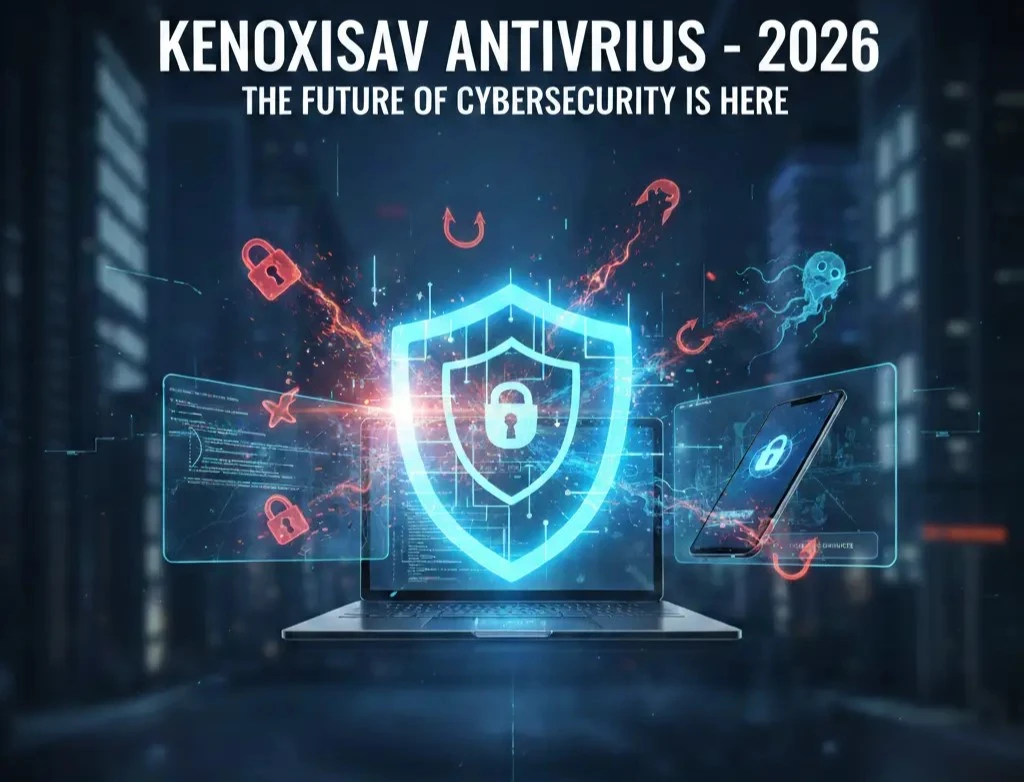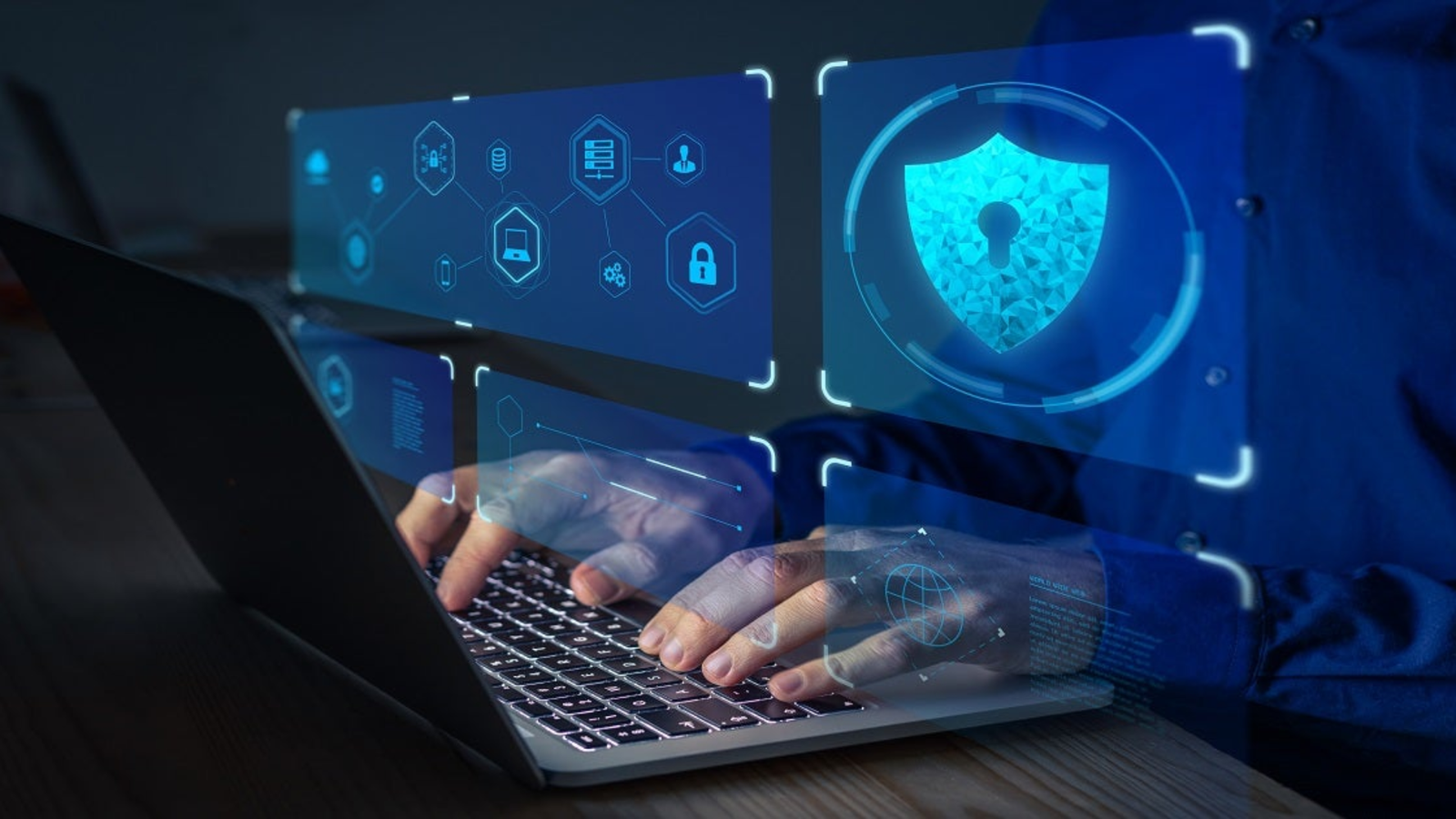Antivirus 101: How to Keep Your Devices Safe in a Digital World
Kenoxisav | 30 Dec 2025

In today’s hyper-connected world—where we do online banking, work remotely, manage our lives through smartphones, and even control home appliances via apps—digital security is no longer a luxury; it is a necessity. The digital revolution has improved our lives in countless ways, but it has also opened the door to cybercriminals who exploit vulnerabilities for their own gain.
Kenoxis Antivirus
Often misunderstood and sometimes underestimated, antivirus programs remain the first line of defense against modern digital threats.
This blog dives into the essentials of antivirus software, why it matters more than ever in 2026, and how you can make informed decisions to protect your devices and data.
What Is Antivirus Software?
Antivirus software is a program or set of programs designed to detect, prevent, and remove malware. Malware includes viruses, worms, Trojans, ransomware, spyware, adware, and other malicious threats. These harmful programs can damage your device, steal sensitive information, or even take full control of your system.
Antivirus tools use a variety of techniques to identify and neutralize threats. Some of the most common methods include:
- Signature-Based Detection: Scanning files for known patterns of malicious code.
- Heuristic Analysis: Identifying new or modified malware by analyzing suspicious behavior.
- Sandboxing: Running suspicious files in a secure virtual environment to observe their behavior.
- Real-Time Scanning: Continuous monitoring to detect threats as soon as they appear.
Why You Still Need Antivirus Software in 2026
There is a common myth that antivirus software is outdated. Some believe modern operating systems and browsers are secure enough on their own. While security technology has improved, cyber threats have evolved just as rapidly.
Here’s why antivirus software still matters in 2026:
- Zero-Day Attacks: Hackers exploit vulnerabilities before developers release fixes. Antivirus software helps reduce these risks in real time.
- Phishing Protection: Many antivirus solutions include anti-phishing tools that flag suspicious websites and emails.
- Ransomware Defense: One of the most dangerous forms of malware today. A strong antivirus can detect and block ransomware before it encrypts your data.
- Multi-Device Protection: Modern antivirus software protects PCs, smartphones, tablets, and even smart home devices.
- Peace of Mind: Even tech-savvy users benefit from antivirus protection as a safety net against unexpected threats.
How Antivirus Software Works
Most antivirus programs operate quietly in the background, scanning files, monitoring downloads, and analyzing program behavior in real time. When a potential threat is detected, the antivirus software may quarantine the file, delete it, or block it from executing.
Many modern solutions also use cloud-based threat analysis, allowing suspicious files to be compared against massive online databases of known malware. This enables faster updates and quicker responses to emerging threats.
Key features to look for include:
- Automatic Updates: Keeps virus definitions up to date
- Firewall Integration: Adds an extra layer of network protection
- Email Scanning: Blocks malicious attachments and phishing links
- Browser Protection: Warns users about unsafe or compromised websites
- Parental Controls: Helps protect children from inappropriate or harmful content
Choosing the Right Antivirus for Your Needs
Not all antivirus software is the same. When selecting the right solution, consider the following factors:
1. Type of Device
Are you protecting a Windows PC, Mac, Android phone, or iOS device? Some antivirus programs are better optimized for specific platforms.
2. Level of Protection
Basic protection may be enough for casual users, but those handling sensitive data or running businesses should consider advanced features such as VPNs, password managers, and identity theft protection.
3. System Performance
Some antivirus tools can slow down your system. Look for lightweight solutions that balance strong security with performance.
4. User Interface
A clean, user-friendly dashboard makes it easier to manage settings and understand security alerts.
5. Customer Support
Reliable support is important in case of technical issues or false positives.
6. Price vs. Features
Free antivirus versions offer basic protection, but paid plans usually provide more comprehensive coverage.
Popular antivirus solutions in 2026 include Bitdefender, Norton 360, Kaspersky, McAfee, and Avast. Each has strengths and weaknesses, so reviewing independent comparisons is recommended.
Beyond Antivirus: Practicing Holistic Digital Hygiene
Antivirus software is a critical security layer, but it works best when combined with good digital habits. Consider these best practices:
- Keep your operating system, apps, and browsers updated
- Use strong, unique passwords and consider a password manager
- Enable two-factor authentication (2FA) wherever possible
- Avoid clicking suspicious links in emails or messages
- Regularly back up important data to the cloud or external drives
- Be cautious when using public Wi-Fi; use a VPN for added protection
The Future of Antivirus Technology
Antivirus technology continues to evolve to combat emerging threats. Artificial Intelligence (AI) and Machine Learning now play a major role in detecting and responding to new malware faster and more accurately.
We are also seeing the rise of extended detection and response (XDR) systems that integrate antivirus, firewall, endpoint detection, and identity protection into a single security solution.
As the Internet of Things (IoT) expands, antivirus developers are also focusing on protecting smart home devices. Everything from refrigerators to thermostats can become a potential entry point for attackers.
Common Myths About Antivirus Software
Let’s clear up a few misconceptions:
- “I don’t visit unsafe websites, so I don’t need antivirus.” Even trusted websites can be compromised.
- “Macs and iPhones don’t get viruses.” They are less targeted, but threats still exist.
- “Free antivirus is just as good as paid versions.” Free tools often lack real-time and advanced protection.
- “Antivirus slows down my system.” Many modern solutions are optimized for minimal performance impact.
Conclusion
In a fast-moving digital world, cybersecurity is a shared responsibility. Antivirus software is an essential tool that helps protect devices and data from constantly evolving threats. However, true protection goes beyond installation—it requires informed decisions, regular updates, and smart digital habits.
Whether you are a casual internet user, a remote worker, or a small business owner, reliable antivirus protection is no longer optional—it is essential. Take the time to choose the right solution and combine it with strong cybersecurity practices.


.png)

.png)

.png)

.png)